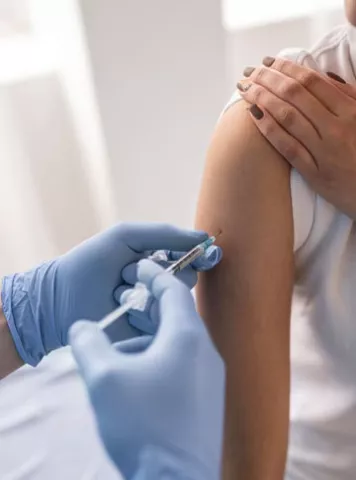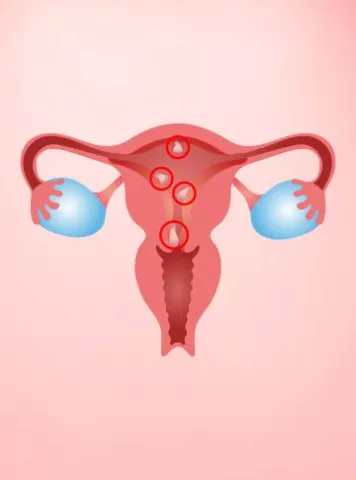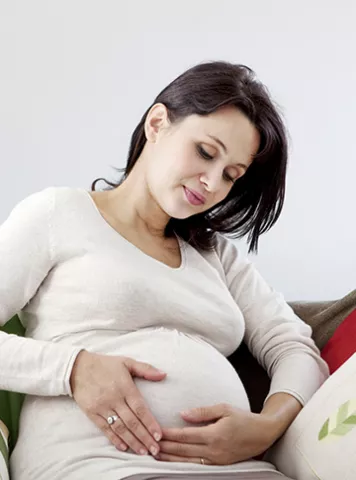Author Name: Dr. Shikha Mukhija || Mentor Name: Dr. Kanika Kalyani on April 27, 2020
Getting pregnant at 45 is certainly possible but, is difficult. For one, female reproductive clock at this age is either ticking in its last pier or already has run out of time. Medically, it is widely believed that age is the single most important factor affecting both,a woman’s chance of conceiving and continuing a healthy pregnancy .Thus, it is considered prudent that women attain pregnancies in their 20s or early thirties .As clock ticks past 35, fertility declines and post 37 ,it skydives.
But in today’s world, with more and more career oriented women aspiring to become pregnant at the late age of 45 ,this situationis a reality. Now, this poses multiple challenges for the clinician. Medically, few questions in this regard are important and need to be understood.
A. What are chances of getting naturally pregnant at 45?
It is a biological fact that as women age, their fertility potential decreases. This is the basic difference between men and women. Men produce millions of sperms every day and with age the number and quality may decrease but there is no menopause means men will always produce some sperms though the fertility potential may not be the same.
In contrast, women are born with whatever eggs they will ever have. The number and quality of these eggs starts declining in early thirties which shows sharp decline past 35. Eventually, sometime in forties, eggs finish and there is menopause.
It is believed that chances of achieving a natural pregnancy is around 20% per menstrual cycle in women in early twenties which declines to around 15% at 30. After 40, these chances are believed to be as low as 3 to 4 percent. Thus, attaining a natural pregnancy at age 45 is not impossible but chances are sparse.
B. Can reproductive technology help?
Yes, ART is the best course when one is trying to achieve pregnancy at 45 .With help of IVF, few good eggs remaining in the ovaries can be retrieved and embryos can be formed. Even one good embryo formed can help the patient in achieving her dream.
Also, if woman is menopausal, she can achieve pregnancy through donor egg program. In fact, There are excellent chances of conceiving if a 45 something female is trying it with eggs of a much younger donor in her 20s.
Practically, contradictions aside, ART and IVF is almost always necessary when one is trying to have a baby at 45.
C. Role of advanced techniques in IVF pregnancy at 45.
Role of PGT -A or prenatal genetic diagnosis in IVF pregnancy at 45 cannot be over emphasized. With the help of this technology, the embryos formed through ICSI can be biopsied and only the embryo which has a normal genetic component can be transferred thereby increasing the chances of having a healthy genetically normal baby .
More and more clinics all over the world are adopting this technique for IVF in older age females.
On the other end of spectrum is the frozen egg program. Career oriented females who wish to attain pregnancies later in life can voluntarily freeze their eggs in IVF lab in their younger age. Thus, they can achieve pregnancy much later in life with their healthy high-quality younger eggs, thus completely precluding the need of PGD and donor eggs
D. Challenges of being pregnant at 45
Just getting pregnant is not the end of story. Pregnancy at 45 in itself is a challenge for both the treating clinician and patient. That’s because of following
1) Increased incidence of miscarriage.
This is because of two reasons. first, there is increased incidence of chromosomal anomalies in embryos as maternal age increases. Risk is as high as from around 30 percent at age 35 to more than 70 percent at age 45!!These aneuploid embryos may make a woman pregnant but mostly result in abortions subsequently.
Other reason is uterine anatomical problems in the older age, for example, uterine fibroids, adenomyosis which may lead to abortion.
2) Increased incidence of preeclampsia
3) Increased incidence of of gestational diabetes mellitus
4) Increased incidence of placenta previa
5) Increased risk of preterm labour
Also, with high risk of genetic anomalies additional testing like mandatory NT with combined test and NIPT or even amniocentesis / CVS may be required.
Thus, all the above factors make pregnancy at age 45 a very high risk one which needs to be very carefully monitored.
On a brighter side, most of these problems can be overcome by regular check-ups and careful monitoring at a good antenatal clinic. Most of the times, pregnant female at age 45 does need extra care and monitoring but subsequently is able to deliver a healthy baby.
Articles
2023


World AIDS Vaccine Day 2023: Can HIV & AIDS affect fertility or your infant’s health?
World AIDS Vaccine Day is observed every year on the 18th of May to create awa...
2023


Male Infertility Infertility Tips
Hyperspermia: Causes, Symptoms, Diagnosis & Treatment
What is Hyperspermia? Hyperspermia is a condition where an individual produ...


Guide to infertility treatments Infertility Tips
पीआईडी: पेल्विक इनफ्लैमेटरी डिजीज और निःसंतानता
पीआईडी - पेल्विक इनफ्लैमेटरी �...
2022


Infertility Tips Uterine Fibroids
Endometrial Polyps (Uterine Polyps)
What are Endometrial Polyps (Uterine Polyps)? Endometrial polyps, often ref...
2022


Female Infertility Infertility Tips
Why do You Need Fertility Treatment
As we all know infertility rate is constantly rising in our society day by day...
2022


Cesarean Section Vs Natural Birth
Surrogacy centers in Delhi and Infertility centers in Pune state that there ar...
2022


ನಿಮಗೆ ಹುಟ್ಟಲಿರುವ ಮಗುವನ್ನು ಅರ್ಥಮಾಡಿಕೊಳ್ಳುವುದು: ಗರ್ಭದಲ್ಲಿ ಮಗು ಹೇಗೆ ಬೆಳೆಯುತ್ತದೆ!
ವೀರ್ಯವು ಮೊಟ್ಟೆಯನ್ನು ಭೇಟಿಮಾಡ�...
2022


Diet Chart for Pregnant Women: The Right Food for Moms-To-Be
Pregnancy Food Chart 1. The daily diet must include the right amount of pro...
2022


Can i become pregnant while my tubes are tied?
Pregnancy is one of the most important phases in women’s life and is conside...
Pregnancy Calculator Tools for Confident and Stress-Free Pregnancy Planning
Get quick understanding of your fertility cycle and accordingly make a schedule to track it















